How To Store Potatoes And Sweet Potatoes
Apr 20, 2020, Updated Nov 26, 2021
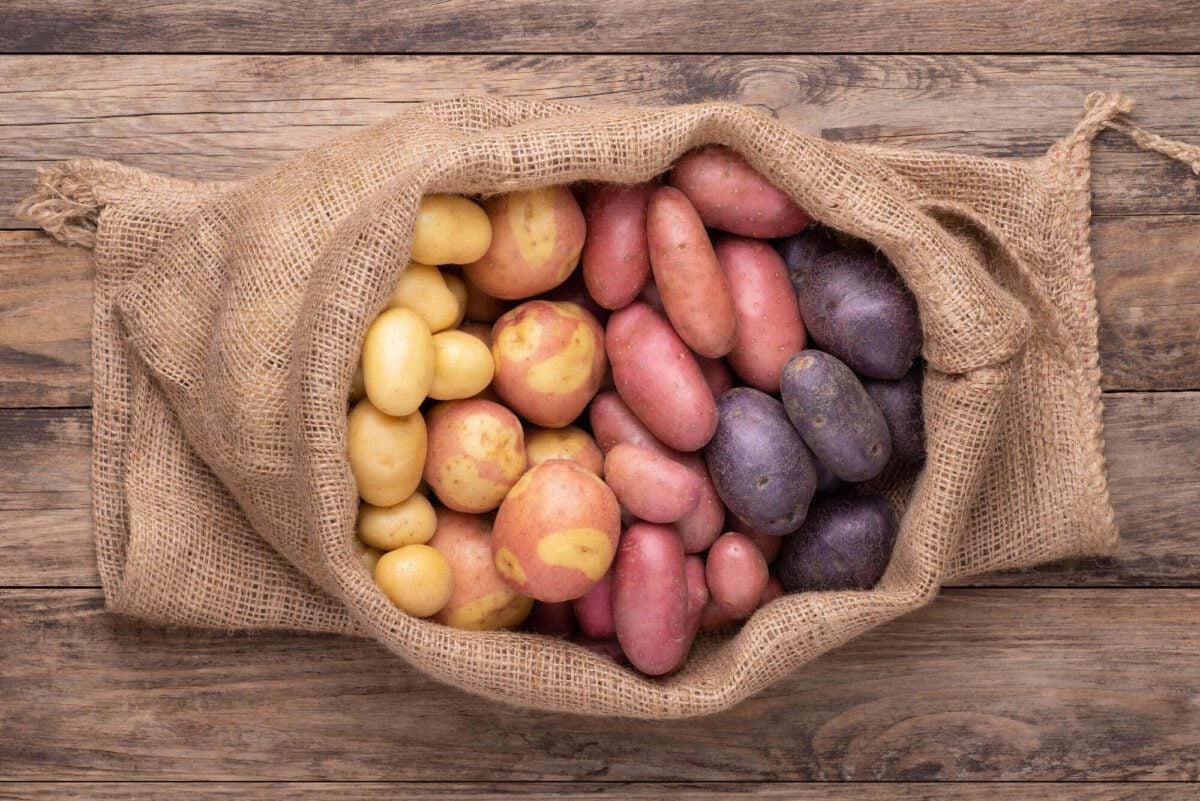
This post may contain affiliate links. Please read our disclosure policy.
This post is sponsored by Wada Farms, a member of The Produce Moms’ family of partners.
Have you ever gone to your potato stash ready to boil them, mash them, or stick them in a stew, only to find them withered, smelly, and spouting? Don’t worry – it’s happened to all of us at some point. But with proper care and storage, potatoes can last for weeks or even months. Here’s a step-by-step guide for ensuring your potatoes have a delicious future!
Storing Potatoes
Pick the best-looking potatoes you can.
When you’re picking the potatoes you want to store, avoid ones with sprouts, soft spots, and pest or shovel damage. Potatoes that are in good condition when you buy them will store longer. If you’re looking for potatoes with a long shelf life, look for ones with thicker skin, like russets or other brown potatoes. Varieties with more delicate skins, like red-skinned potatoes or fingerlings, don’t have as much resilience in storage.
Don’t wash your potatoes before storing them.
Potatoes tend to store well if they’re as fresh from the ground as possible. A little dirt is fine during storage; wash it off before cooking. By washing them before storage, you create habitats for microbes that can cause the potatoes to rot.
Find a good storage spot.
Keep them somewhere dark. Sunlight can cause your potatoes to begin sprouting, so don’t keep them out on the counter. Instead, keep them someplace dark (but not somewhere you’ll forget about them).
Don’t store them in the fridge — the air inside is too cold and dry for potatoes. At the temperature in your refrigerator, potato starch turns into sugar.
Avoid humidity and find somewhere cool and dry. Not every home was built with a root cellar, but you can emulate one with a dry corner of your garage during the winter or a cool and dry area in your basement. The ideal temperature range is around 45 to 50 degrees Fahrenheit. If you’re storing them in your kitchen, avoid cabinets near your sink, dishwasher, or oven and look for areas that will stay dry.
Let them breathe.
Potatoes need to breathe during storage. Keeping them in a sealed container can cause them to become shriveled. You’ll also want to avoid keeping them in plastic bags, as these can trap moisture. Baskets, mesh bags, or even open-top paper bags are all great for storing potatoes.
Keep them away from other fruits and vegetables.
Many people store their potatoes with onions. These two root vegetables do go well together, but not until they’re being cooked! The ripening gases given off by onions and other fruits and vegetables cause potatoes to sprout, severely shortening their shelf life.
Culinary lore claims that apples can suppress sprouting. Some studies show that the ethylene gas released by apples may keep potatoes from sprouting at certain ratios (about one apple for every five pounds of potatoes). However, results from the scientific community are mixed, so we’ll leave this to your own discretion and experimentation.
Don’t eat sprouts or green parts of the potato.
Parts of the potato that have sprouted or turned green contain chemicals that are toxic to humans. If you still want to eat the potato, simply cut away all the green parts. Potatoes can cause each other to sprout, so regularly check your potato stash and remove any sprouting potatoes before they ruin the batch.
If you’ve found yourself on this page due to the untimely demise of the potatoes you had stored, these Wada Farms organic potatoes are available year-round at your local grocery store.
Hungry for some potato facts? Check out our eBook, Power Up With Potatoes, brought to you for free by Wada Farms!
Storing Sweet Potatoes
Sweet potatoes and white potatoes do well in similar storage conditions — the two can even be stored together!
In addition to the instructions for storing white potatoes, here are the steps you should follow for storing sweet potatoes:
Avoid bruised sweet potatoes.
Sweet potatoes that are bruised haven’t cured correctly. They won’t last as long as healthy sweet potatoes and can even cause them to spoil faster. To learn more about selecting the right sweet potatoes, we have some insight for you straight from Wada Farms experts.
Don’t put them in the fridge.
It’s still wise to avoid storing sweet potatoes in the refrigerator, as they’ll become hard and develop a bad taste.
Wrap each sweet potato in newspaper.
Paper is breathable enough to give the sweet potatoes proper airflow and can help protect them during storage.
Find the right storage location.
Sweet potatoes prefer slightly different conditions that white potatoes. Around 55 to 60 degrees Fahrenheit with some humidity is best. They’ll still require a dark place away from other fruits and vegetables, except maybe an apple.
Love sweet potatoes and want to learn more about them? We partnered with Wada Farms again to create a free eBook just for you: Sweet Spud Love!
What’s the point of storing potatoes if you’re not making something delicious with them? Here are a few recipes for those potatoes you’re storing away:
- Brussels Sprouts and Sweet Potato Hash
- 3 Ways To Cook Steakhouse Baked Potatoes
- No-Fumble Crock Pot Sweet Potato Soup
- Pork, Sweet Potato, and Apple Sheet Pan
What’s your favorite potato dish? Share in the comments below.
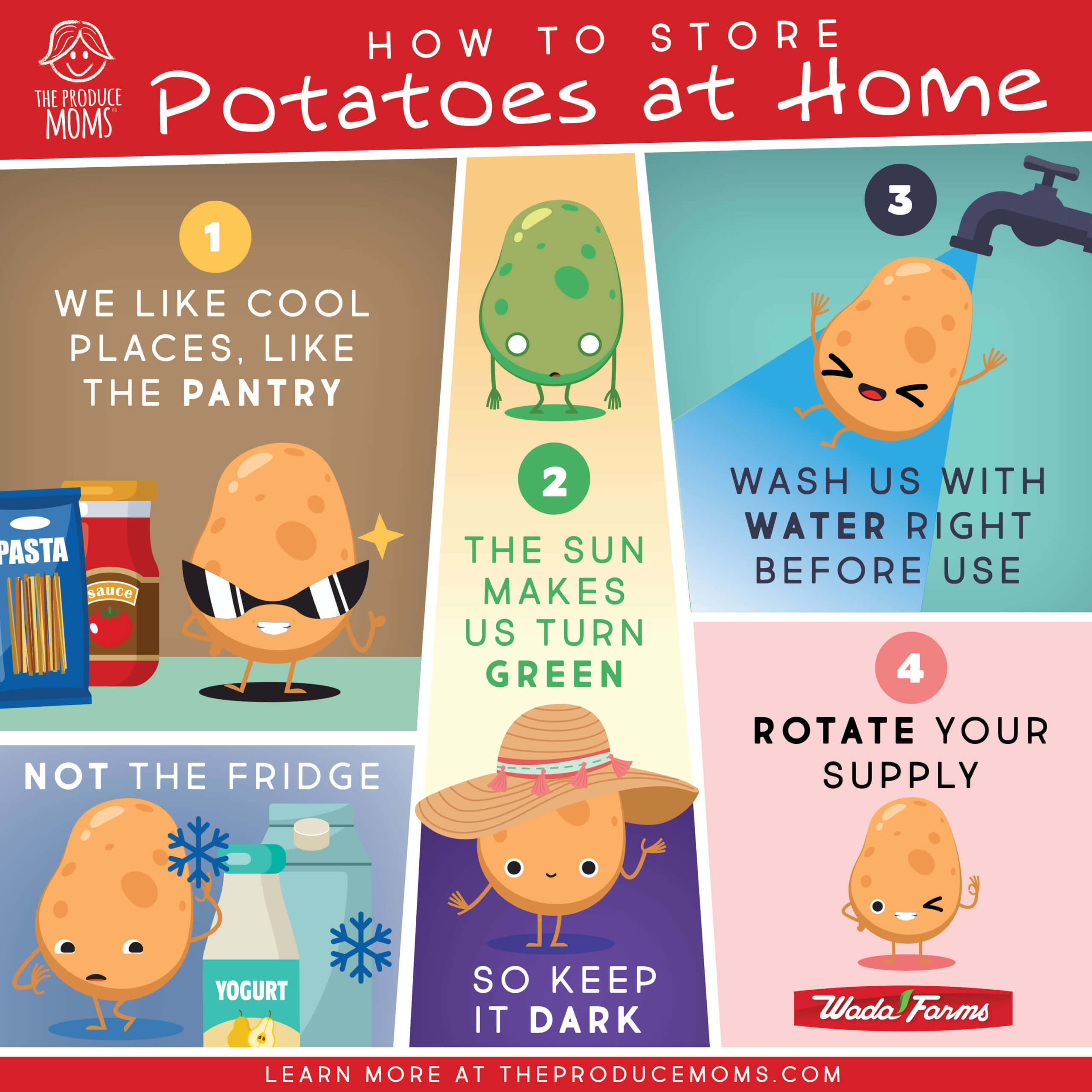
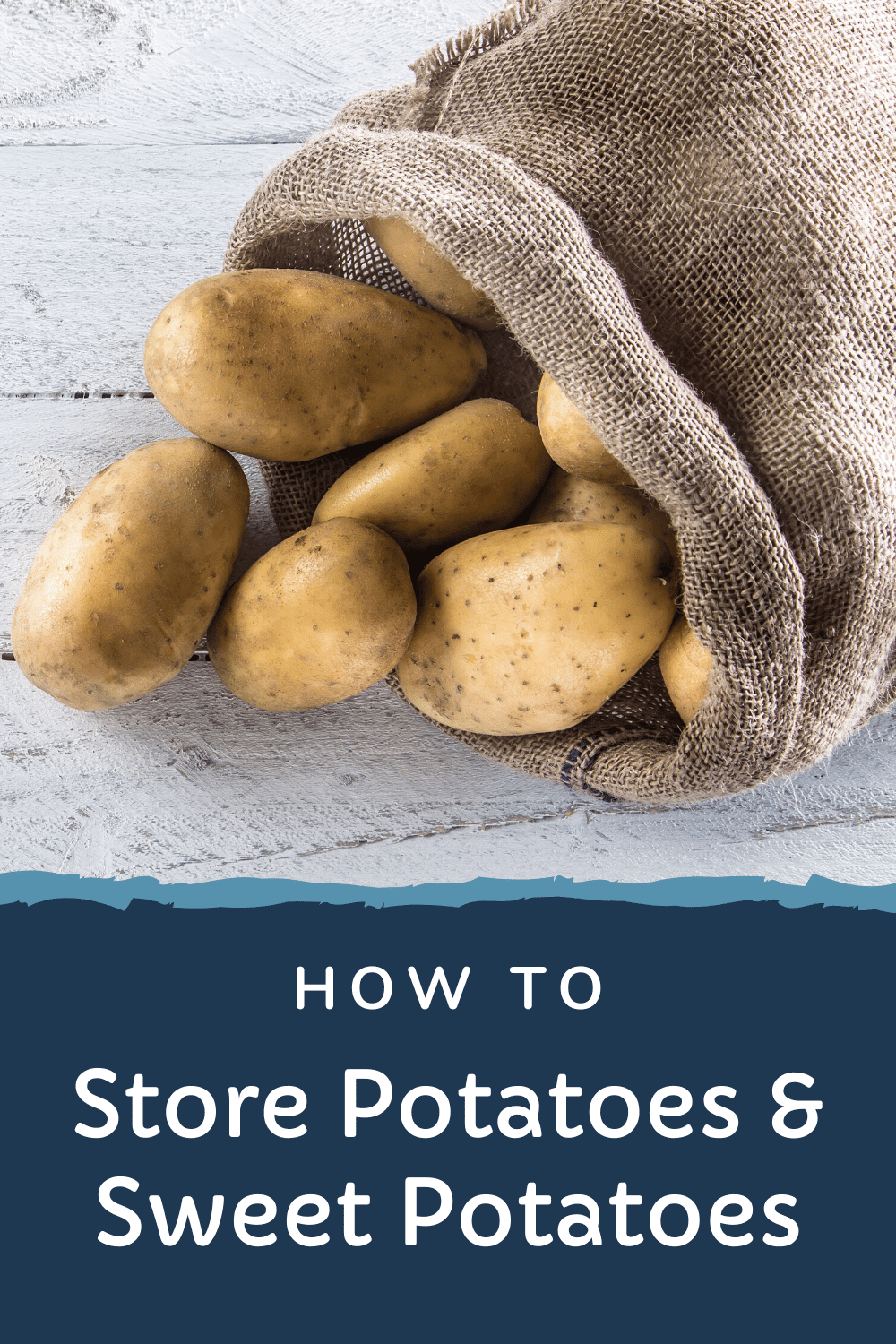
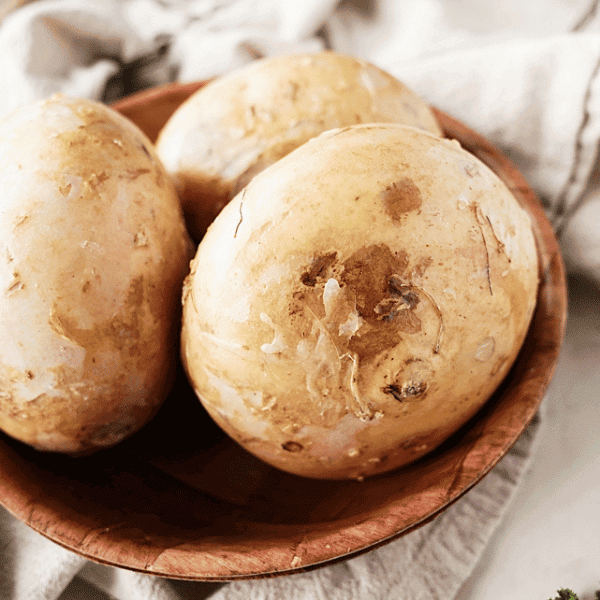
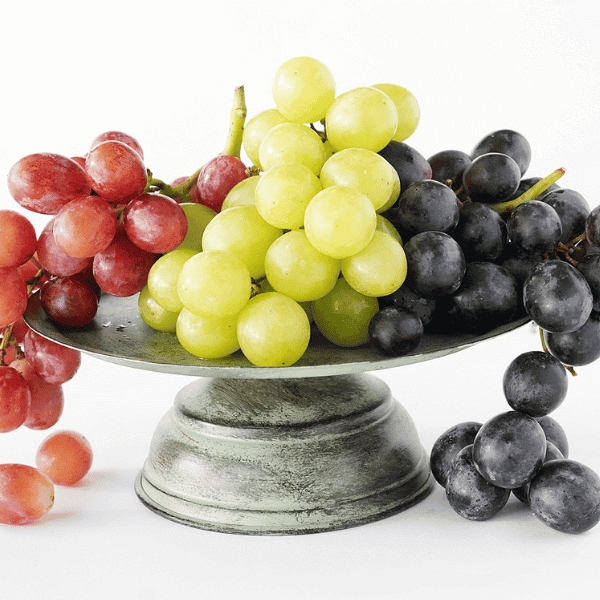
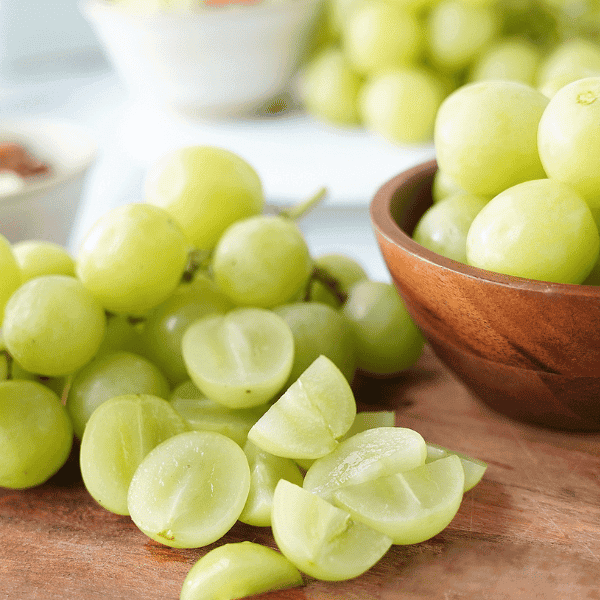
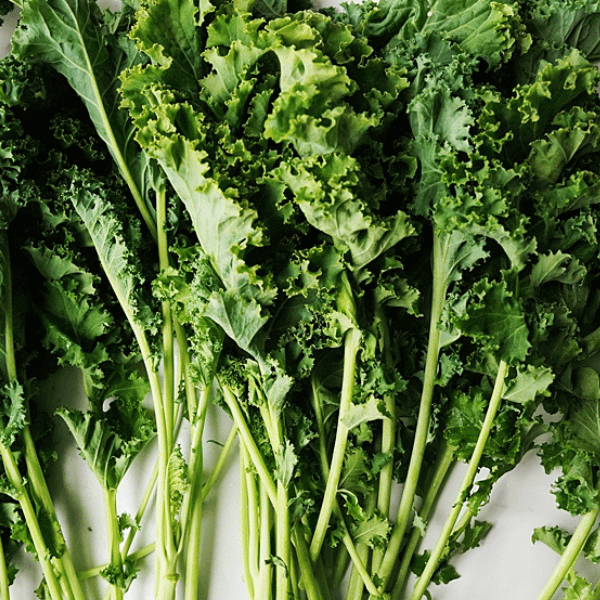


This answered afew questions for me. thanks. One ofmy favourite ways to offer sweet potatoes is mashed. with butter salt and a very slight bit of nutmeg mixed in. put in a casserole dish. sprinkle a little bit of cinnamon over the top then bake until there’s a little crust. no need for any sugar.
Enjoyed the article, but what else works for wrapping sweet potatoes before storing them besides “ newspaper”?
You can also use brown paper bags. Hope that helps!
Awesome information. I couldnt understand why my potatoes that were in the same bag with my onions were sprouting so fast. Now I know the secret.
Great information an an easy read .thank you!